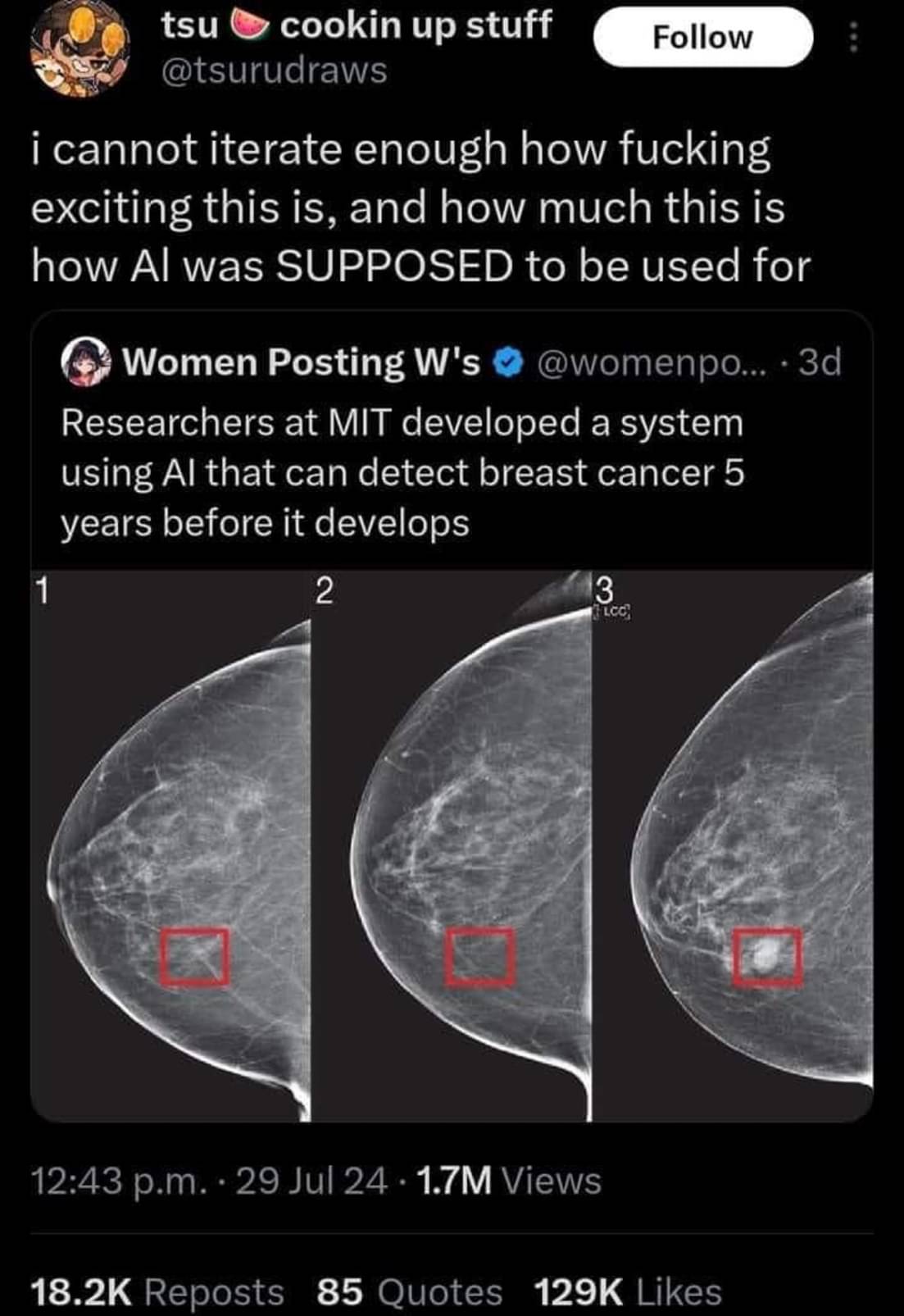this post was submitted on 02 Aug 2024
1519 points (98.4% liked)
Science Memes
11081 readers
2765 users here now
Welcome to c/science_memes @ Mander.xyz!
A place for majestic STEMLORD peacocking, as well as memes about the realities of working in a lab.

Rules
- Don't throw mud. Behave like an intellectual and remember the human.
- Keep it rooted (on topic).
- No spam.
- Infographics welcome, get schooled.
This is a science community. We use the Dawkins definition of meme.
Research Committee
Other Mander Communities
Science and Research
Biology and Life Sciences
- [email protected]
- [email protected]
- [email protected]
- [email protected]
- [email protected]
- [email protected]
- [email protected]
- [email protected]
- [email protected]
- [email protected]
- [email protected]
- [email protected]
- [email protected]
- [email protected]
- [email protected]
- [email protected]
- [email protected]
- [email protected]
- [email protected]
- [email protected]
- [email protected]
- [email protected]
- [email protected]
- [email protected]
- !reptiles and [email protected]
Physical Sciences
- [email protected]
- [email protected]
- [email protected]
- [email protected]
- [email protected]
- [email protected]
- [email protected]
- [email protected]
- [email protected]
Humanities and Social Sciences
Practical and Applied Sciences
- !exercise-and [email protected]
- [email protected]
- !self [email protected]
- [email protected]
- [email protected]
- [email protected]
Memes
Miscellaneous
founded 2 years ago
MODERATORS
you are viewing a single comment's thread
view the rest of the comments
view the rest of the comments

Using AI for anomaly detection is nothing new though. Haven't read any article about this specific 'discovery' but usually this uses a completely different technique than the AI that comes to mind when people think of AI these days.
From the conclusion of the actual paper:
If I read this paper correctly, the novelty is in the model, which is a deep learning model that works on mammogram images + traditional risk factors.
I skimmed the paper. As you said, they made a ML model that takes images and traditional risk factors (TCv8).
I would love to see comparison against risk factors + human image evaluation.
Nevertheless, this is the AI that will really help humanity.